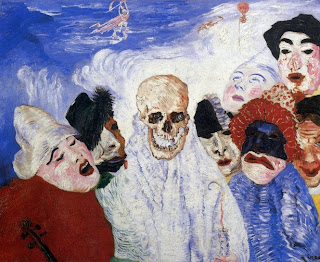 |
| (Image from http://esotericonline.tripod.com/esoteric_online_team.htm) |
First of all it is important to know that nowadays the description online facilitator can refer to two different things. When you Google the term "online facilitator" many if not most of the links you will find will refer to the possibility to teach online activities and to act as a trainer, tutor or instructor for virtual classes.
The other use of this term which is the purpose of this article describes the online facilitator as a moderator and especially in an online business setting as a team leader who helps participants collaborate and achieve synergy. An online facilitator needs to be able to act as a conflict resolution facilitator in a virtual environment. With the rapid rise of internet, globalization and accessible interactive technologies people tend to spend more and more time in front of their computers, connecting with others around the world. Yet even when people are online they reflect their own personalities, needs and values. We are not another person because we are behind a screen and we feel anonymous. Therefore, online work teams can be as hard to manage as teams in a real office. Online teams usually gather people from different parts of the world who speak various languages, have different cultural backgrounds and display a plethora of work values and/or ethics.
The question of empowerment and reaching consensus is therefore central to the team's interactions and its underlying mechanism. In the context of online teamwork, an online facilitator possessing a conflict resolution, business and communication background could be much beneficial - if not downright essential - in order to help the team reach their common objectives and agreements in a respectful manner which will preserve positive relationships between individuals involved.
As lately reported in the news with the cyberbulling problems, the virtual world can be as damaging for its users as the real world; that is why we need to assure clear communication patterns and respectful cyber places for the online work environments as well as all human interactions (including online ones).
As lately reported in the news with the cyberbulling problems, the virtual world can be as damaging for its users as the real world; that is why we need to assure clear communication patterns and respectful cyber places for the online work environments as well as all human interactions (including online ones).






















